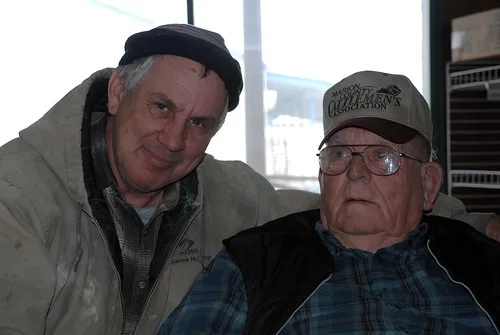

Six Cents a Dozen
During a chance meeting with my longtime friend Robert Craig at Burkmann Mills, he shared a forgotten story from over forty years ago that painted a vivid picture of my father’s political allegiance and the good times that went on at Browning Repair. Robert worked at Browning Repair, a local establishment owned by William Henry Browning, a nephew of my father.
The Legacy of Browning Repair: A Community Story from Kentucky
This place wasn’t just a repair shop; it was a hub of community interaction, where the clatter of machinery blended with the buzz of local gossip. Daddy would often take our machinery there for repair. But his visits served a dual purpose; apart from ensuring the machinery’s upkeep, he indulged in the exchange of local news, soaking in the word-of-mouth that traveled faster than the newspapers.
In those days, Browning Repair saw a daily parade of twenty to thirty people, each carrying snippets of their lives, sharing stories, laughter, and, during that particular fall, a hefty dose of political discourse.
The 1980 Presidential election was on everyone’s lips, overshadowing the usual topics with its significance. Daddy, a staunch Yellow Dog Democrat who had remained loyal to the party since the days of FDR, found himself particularly riled up by the candidacy of Ronald Reagan. His disdain wasn’t just rooted in party loyalty; it was personal. At 67, my father was facing the twilight of his time as a school bus driver, a role he cherished. He was forced to quit due to age restrictions at that time.
Reagan, older than him and vying for the presidency, symbolized a challenge to his sense of fairness and order in the world. Many a time I heard Daddy say with disgust, “It is a hell of an out that Reagan can be elected President of the United States, even though he is older than me and I am considered too old to drive a school bus! “
The political banter at Browning Repair often saw my father at the center, catching flak from William Henry and other Reagan supporters who frequented the shop. A few days before the election, in a moment brimming with frustration and foreboding, Daddy predicted a grim future under Reagan’s leadership. He issued a dramatic warning: “If Reagan wins, America will go back to the economic despair of the Depression years.” Robert also remembers him saying as he went out the door, “If Reagan wins the election, in less than three weeks we will be back to selling eggs for six cents a dozen like it was during the Depression! “
As history unfolded, Reagan clinched the presidency, a development that didn’t sit well with Daddy. In a humorous episode following the election, as recounted by Robert, Daddy walked into Browning Repair carrying a dozen eggs. Without a word being spoken between them, William Henry went into his office and returned with six cents. After the silent exchange, Daddy left, again not saying a word. The silence, heavy with significance, underscored their deep political divides but also hinted at a time when such differences, though profound, were navigated with mutual respect. I had never heard this story from my father or William Henry. It was through Robert, forty years or more later, that this piece of family lore reached my ears. It reminded me that while the political landscapes may shift and churn with the times, the ability to agree or to disagree was different in the past. In the past, even if people disagreed about politics, they still managed to live together peacefully and didn’t let their differences turn into the dramatic arguments we often see now.
